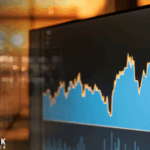Paris-based AI healthtech startup ArcaScience has announced securing $7 million in seed funding. The funding round was led by The Moon Venture, with notable participation from Pléiade Venture, Plug&Play Ventures, Bpifrance, and AKKA Technologies. Aiming to utilize this financial boost to expand its operations in the US and UK, ArcaScience plans to create a novel standard for drug evaluation. Additionally, significant portions of this funding are earmarked for launching patient-focused solutions targeting pediatric brain cancer and skin diseases, as well as hiring a Chief Medical Officer, which collectively signify furthering their mission of addressing inefficiencies in healthcare. Originating from founder Romain Clement’s personal battle with brain cancer, ArcaScience takes justified criticism of the current lengthy and costly drug development process. The company is guided by the principle of ensuring faster, life-saving therapies reach patients efficiently.
Throughout its journey, ArcaScience has continuously evolved its services. Initially raising €1.3 million in a pre-seed round through Plug & Play Ventures and angel investors, the company has progressively upgraded its reach. Partnering with distinguished institutions like the Brain Institute of Paris and Inserm, the startup has enhanced its technology to cater to the pharmaceutical industry’s stringent requirements. Its proprietary platform, which utilizes 24 specialized AI models, seamlessly aligns with the complex dynamics of drug benefit-risk evaluation, proving instrumental in clinical decision-making processes.
How Has ArcaScience Refined Drug Evaluation?
ArcaScience’s technology plays a pivotal role by converting unstructured biomedical data into clear benefit-risk analyses, thus assisting pharmaceutical companies in evaluating drug candidates more effectively. Through AI, the platform generates predictive insights that are crucial for assessing the safety and efficacy of potential drugs. Commenting on the technological advancements, Romain Clement highlighted the importance of structured data in decision-making:
“Too many life-changing therapies never reach patients because decision-makers lack structured, comprehensive insights,” he stated. “We’re answering these crucial questions,” he added, focusing on how the technology can remediate existing limitations.
What Sets ArcaScience’s Platform Apart?
ArcaScience’s platform has been utilized by numerous patients, showcasing its potential in fields like dermatology and pediatric brain cancer. The platform stands out due to its ability to provide near-instant benefit-risk assessments compared to established entities like Wolters Kluwer and Elsevier. Its patient-specific, explainable outputs are progressively being recognized and embraced by clinical and safety leaders, as it aids in minimizing risks associated with clinical trials and improves outcomes for existing drug development practices.
Furthermore, the startup has forged significant alliances, notably its partnership with major pharmaceutical companies such as Sanofi. ArcaScience’s technology has notably facilitated Sanofi in reducing the drug evaluation process timeframe from 18 months to mere seconds through leveraging extensive insights. Commenting on this, Clement stated:
“Our partnership with Sanofi exemplifies our impact; our platform enabled them to analyze benefit-risk using nine times more insights,” he highlighted, affirming the efficacy and potential of the streamlined evaluation model.
Despite challenges in bias and representation, ArcaScience’s approach in developing ethically clear AI models promises fair and just evaluations since approximately 90% of potential data remains unutilized in conventional analyses. Enhancing fairness and transparency in data accuracy, the company actively involves demographic diversity in its analyses, addressing a crucial gap in representation. Through clear, evidence-based insights, the platform intends to alleviate such disparities, ensuring equal access to safe and effective medical solutions globally.
ArcaScience seeks to modernize the decades-long drug development process, focusing on speeding up therapy availability across diverse patient groups globally. With plans underway to fast-track drug development, Clement envisions an industry shift towards a new global standard over the next five years:
“In 5 years, I see ArcaScience shifting the way we prioritize and develop drugs,” he concludes, aiming for expansive impacts both regionally and internationally.









